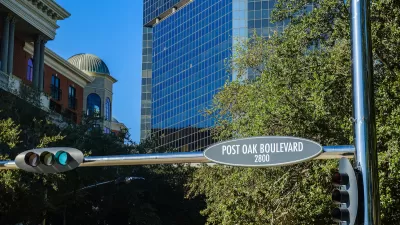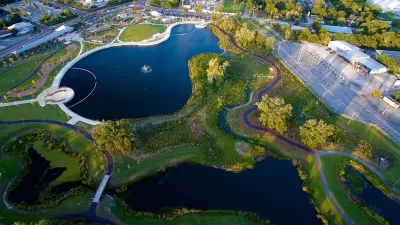A new study offers evidence that walking in a natural setting is more beneficial to mental health than walking in an urban setting.
Researchers have known for some time that urban dwellers tend to have higher levels of anxiety and depression than people living outside of cities. Until now, they didn't know why. A new study from the Emmett Interdisciplinary Program in Environment and Resources at Stanford University explores the link between mental health and exposure to natural environments.
The study, published in Proceedings of the National Academy of Sciences, was designed to investigate the effects of a nature walk vs an urban walk on levels of rumination, what is commonly known as brooding. The findings of the controlled experiment by Gregory Bratman and his colleagues indicate that a walk in the park affects the brain in meaningful ways, whereas a walk through an urban environment does not. "We show in healthy participants that a brief nature experience, a 90-min walk in a natural setting, decreases both self-reported rumination and neural activity in the subgenual prefrontal cortex (sgPFC), whereas a 90-min walk in an urban setting has no such effects on self-reported rumination or neural activity."
There is much debate about the causes of the dramatic rise in psychiatric diagnoses of mental disorders over the past decade. As the authors note, there are many benefits to urbanization, however, with 70 percent of the global population expected to live in urban environments by 2050, the implications of the study are important to understanding how to treat the epidemic of mental illness. The study reveals "a pathway by which nature experience may improve mental well-being and suggests that accessible natural areas within urban contexts may be a critical resource for mental health in our rapidly urbanizing world."
Hat tip to Gretchen Reynolds for reporting on the study.
FULL STORY: How Walking in Nature Changes the Brain

Maui's Vacation Rental Debate Turns Ugly
Verbal attacks, misinformation campaigns and fistfights plague a high-stakes debate to convert thousands of vacation rentals into long-term housing.

Planetizen Federal Action Tracker
A weekly monitor of how Trump’s orders and actions are impacting planners and planning in America.

Chicago’s Ghost Rails
Just beneath the surface of the modern city lie the remnants of its expansive early 20th-century streetcar system.

Bend, Oregon Zoning Reforms Prioritize Small-Scale Housing
The city altered its zoning code to allow multi-family housing and eliminated parking mandates citywide.

Amtrak Cutting Jobs, Funding to High-Speed Rail
The agency plans to cut 10 percent of its workforce and has confirmed it will not fund new high-speed rail projects.

LA Denies Basic Services to Unhoused Residents
The city has repeatedly failed to respond to requests for trash pickup at encampment sites, and eliminated a program that provided mobile showers and toilets.
Urban Design for Planners 1: Software Tools
This six-course series explores essential urban design concepts using open source software and equips planners with the tools they need to participate fully in the urban design process.
Planning for Universal Design
Learn the tools for implementing Universal Design in planning regulations.
planning NEXT
Appalachian Highlands Housing Partners
Mpact (founded as Rail~Volution)
City of Camden Redevelopment Agency
City of Astoria
City of Portland
City of Laramie





























